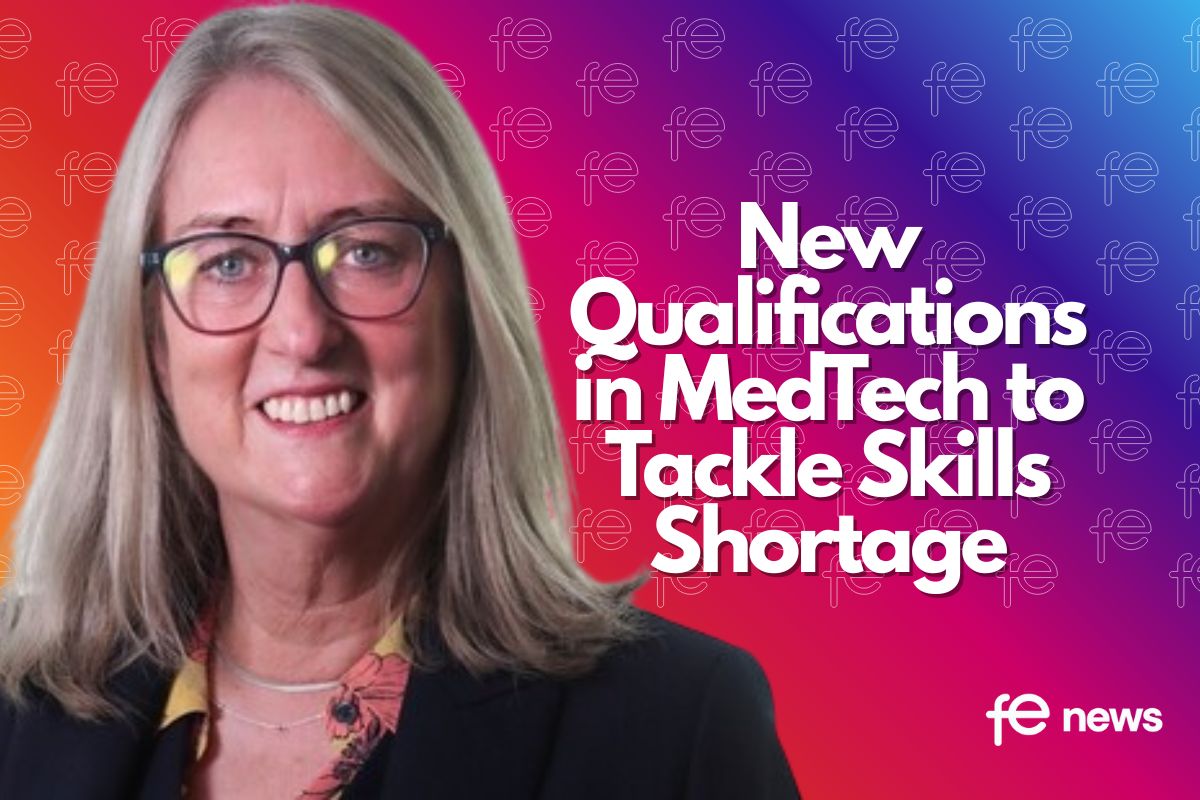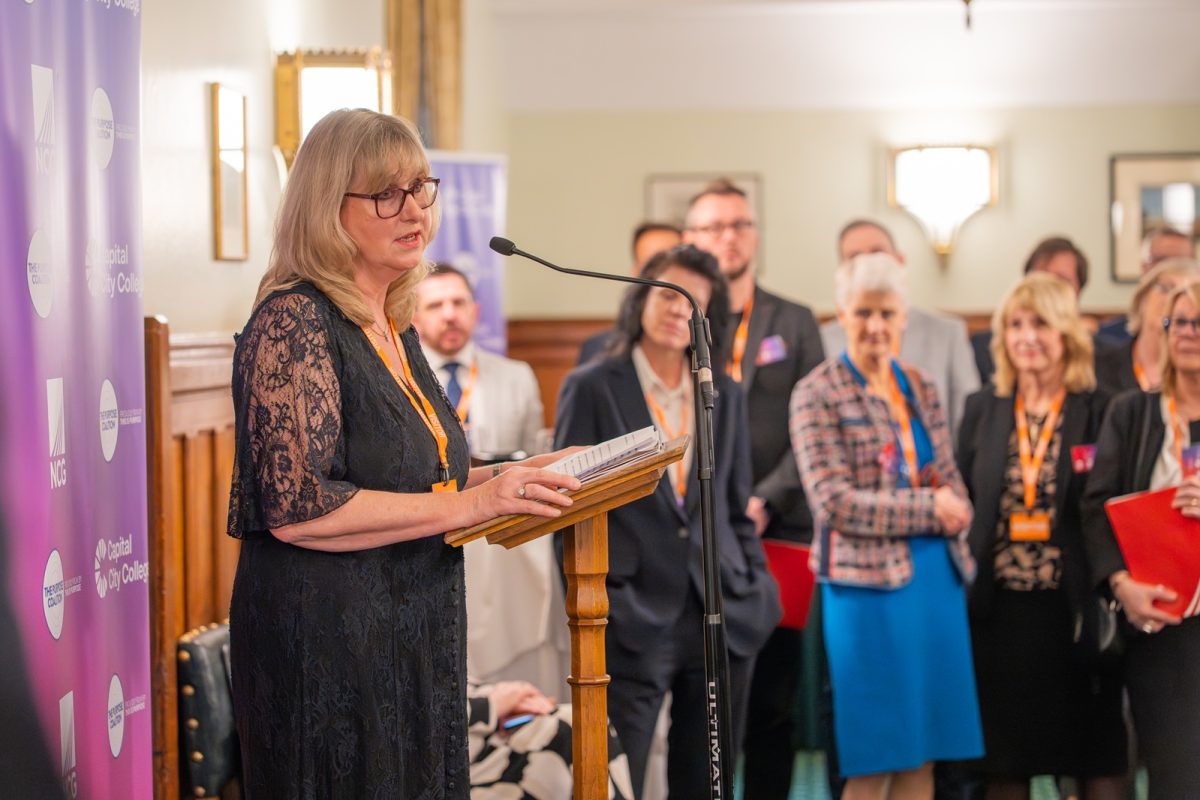Strategic Guidance to the Office for Students – Ministerial priorities

In a letter to the Office for Students, the Education Secretary Gavin Williamson makes it clear that higher education delivering value for money is a priority for the Government:
Dear Sir Michael,
I would like to take this early opportunity, on behalf of myself and the Minister for Universities, Science, Research and Innovation, to write to you to confirm my view that excellent progress has been made since the establishment of the Office for Students (OfS) last year.
Much has been achieved to deliver on the vision that the Higher Education and Research Act (HERA, 2017) set out, to ensure we have a world-class higher education sector for all students, delivering value for money for all. I am pleased to see that the OfS is continuing to develop as an organisation with a new mission and culture, having successfully completed the transition from regulating using HEFCE and OFFA powers.
The OfS is now able to use all of its powers under HERA and the specific ongoing registration conditions that have been imposed on some providers on the OfS register are evidence of this new risk-based approach to regulation. I am also pleased to see the robust approach being taken to access and participation, and welcome the analysis that the OfS are developing to consider the outcomes of access and participation interventions.
Our predecessors issued guidance to the OfS in February 2019 and June 2019. As the new academic year begins, and as we prepare to exit the EU on 31 October 2019, I would like to set out what I consider should be current priorities for you as an independent regulator. This guidance supplements, rather than supersedes, the guidance issued earlier this year.
Value for money
I firmly believe that HE has the power to change lives but this is only the case when students can be sure that they are receiving a high quality education and can be confident of the value of their and government’s investment. It is important therefore that the OfS attaches the highest priority to this work, and that it is reflected in your forthcoming value for money strategy.
While this work progresses, to further support students’ and taxpayers’ interests and to protect the sector’s reputation, you have my full backing to continue to exercise your powers boldly to ensure that you are an effective regulator. I note that you have already taken decisions not to register providers where you have most serious concerns. I am sure you will continue in your rigorous decision-making during the initial registration process and taking action where monitoring of providers’ compliance with ongoing conditions of registration suggests that there are courses and providers that are not delivering value for students. Where, for example, there are unacceptable levels of drop-out rates or failures to equip students with qualifications that are recognised and valued by employers, falling short of what is required of a provider under its registration conditions, we fully support the OfS in using the full range of monitoring and enforcement powers it now has at its disposal, such as its powers to impose enhanced monitoring requirements; to require providers to undergo a full quality and standards review; and use of the OfS’s statutory powers to suspend a provider’s registration; to apply additional and specific registration conditions; and to impose financial penalties.
I welcome the work underway at the OfS to develop even more rigorous and demanding quality requirements to apply to providers through the registration process and beyond. It is important that the OfS increases its capacity and ability to identify providers that do not meet the baseline quality requirements as you start to assess provider compliance with the ongoing registration conditions. I expect the OfS to use the evidence you have gathered through the registration process to identify where current baseline requirements might be raised to ensure that providers deliver successful outcomes for all students. I understand and fully support the OfS intention to revisit the minimum baselines which you use when making regulatory judgements about student outcomes ahead of your consideration of data for 2018-19.
Teaching Excellence and Student Outcomes Framework (TEF)
Alongside baseline quality requirements, the TEF is a vital tool for helping the OfS and the public to understand quality and value for money in the higher education sector. This means I would like the OfS to be ambitious in its plans for the development of the TEF, both in scope and timing.
With that in mind, I would like the OfS to publish subject level TEF in 2021. This should be alongside the implementation of a new TEF model to be developed following the publication of the government response to the Dame Shirley Pearce’s Independent Review of TEF undertaken under Section 26 of HERA 2017. This new model should ensure the TEF is seamlessly integrated into OfS’s approach to the regulation of quality more broadly. To ensure that we do not lose momentum, I would also like the OfS to consider running a further provider level TEF assessment exercise with results to be published in 2020.
Admissions, marketing and recruitment
I welcome your decision to conduct a review of the admissions system and your commitment to keep Ministers and officials regularly informed of the emerging views and any recommendations from this work. I note that you recognise the importance of gathering evidence and consulting with both students and schools and colleges and I would endorse the proposal to use the review to consider the pros and cons of potential models of Post Qualification Application {PQA). While this has been considered before, the context in which the sector is operating has changed and there has been much recent debate about this topic expressing differing views.
Overall, I anticipate that the review will be an opportunity to identify improvements, based on evidence, which will help to further improve and develop the admissions system so that it remains fair and transparent for students both now and in the future, particularly for students from disadvantaged backgrounds. I look forward to your updates and final report.
The injudicious use of unconditional offers is an issue of deep concern to me, particularly the use of conditional unconditional offers. There are also other recruitment practices, including the use of inducements that could have an adverse impact on the access and success of students in higher education. I am therefore pleased to see that you are working with the Competition and Markets Authority to identify and address any breaches of consumer law by providers. I am also concerned about the evidence that the use of unconditional offers has already had an adverse impact on students• achievements in level 3 qualifications and their subsequent success in higher education.
Student Contracts and Consumer Rights
I would like the OfS to prioritise work supporting students as empowered consumers. Students must be able to apply to university in the knowledge that what they are being promised will be delivered. They must be able to make their choices based on clear, comparable, and relevant information about what is being offered and have contractual terms and conditions that are fair, as well as clear and transparent. And students must be able to access transparent and effective complaints processes when their consumer rights are not met. Beyond consumer rights, I want every student to be confident their institution stands up for free speech and that they will not experience unacceptable behaviour during their time at university, such as harassment, racial abuse, antisemitism and other forms of intolerance and prejudice.
Working with partners such as the Office of the Independent Adjudicator for Higher Education and the Competition and Markets Authority, as well as with other experts in the field, I would like the OfS to review the effectiveness of current practice ensuring students’ consumer rights are supported, and in particular to consider options for standard contractual templates setting out these rights. I would like the OfS to report its conclusions and make initial recommendations to Government by February 2020. I would also like to commend the work the OfS is taking forward on ensuring extensive student protection in the event of a provider closing, and would urge action in this area to be as ambitious as possible.
Innovative and Flexible Provision
I would like to see the OfS continue to focus on part-time and flexible learning through a set of ambitious plans to deliver real choice and flexibility throughout working lives, and in response to the needs of business. There will be a number of strands to this work: use of Access and Participation Plans; a review of the regulatory and funding arrangements surrounding flexible provision; a Challenge Competition to support flexible learning; considering how to raise awareness of accelerated degrees; and a plan for the use of your regulatory powers relating to student transfer.
Your guidance on Access and Participation Plans included an emphasis on mature learners. As part-time, flexible and innovative provision increases diversity in the means by which mature learners are able to access higher education, as part of your ongoing learning, we would like you to review agreed Access and Participation Plans to help understand how higher education providers are offering this sort of choice of provision for students.
I would like to see the OfS working closely with the DfE to develop a plan to review the regulatory and funding arrangements surrounding flexible provision – with a particular emphasis on how these can be used to promote greater student choice whilst maintaining the focus on quality. I would like you to discuss further with DfE the scope of this review on flexible provision, but it could cover areas such as how the current funding is used by providers and how performance metrics support and incentivise flexible provision. I would like a plan to be agreed by the end of November 2019 and an interim report by the end of March 2020.
I am also pleased to see that you intend to create a Challenge Competition to be launched in early 2020. I hope this will show more broadly how we can support and encourage greater diversity of provision, including innovation and technological solutions in flexible and part-time learning. I welcome your continued emphasis on evaluation as part of these competitive funds, and would like to use this to understand more about the demand for different forms of flexible learning
As part of your activity to promote greater student choice, I would like the OfS to consider how to raise awareness of accelerated degrees. This is in the context of the new higher fee cap and maximum fee loan for accelerated degree courses that the Government has introduced from the 2019/20 academic year with the aim of incentivising wider provision and take-up of accelerated degrees.
Finally, the OfS has a duty to monitor the availability of schemes or other arrangement provided by registered higher education providers for student transfer and the extent to which these arrangements are utilised by students generally or students of a particular description. The OfS can also facilitate, encourage or promote awareness of the provision of arrangements by registered higher education providers for student transfers. There are also annual reporting requirements. In light of this, I would also like the OfS to develop a plan for how you will use these regulatory powers to promote greater student choice.
International Higher Education & Brexit
The UK is committed to leaving the EU by October 31st. While Government seeks to secure a mutually acceptable deal with the EU it must prepare for every eventuality and, consequently, Government has intensified its preparations for a “No Deal” outcome. I am grateful for your support in providing information, advice and guidance to UK nationals studying higher education in the EU on their options. In addition, in order to help the sector prepare for a No Deal Brexit, the OfS will have an important role to play in communicating important information to the sector and I would like our two organisations to work very closely on this particular task.
As the UK prepares to leave the EU, it is vitally important we cement our position as Global Britain, strengthening relationships with our partners around the world, and higher education has a key role to play in delivering that objective. The UK provides a strong offer to international students who not only enrich our campuses with their presence but also act as a source of soft power and influence and this offer will be further enhanced with the recently agreed Graduate Route visa, offering international students the chance to work in the UK for two years after graduation. For all of these reasons, that is why the International Education Strategy contains an ambition for the UK to host 600,000 international higher education students by 2030, an increase of 30% on current levels.
However, in order to achieve this ambition we will not be able to rest on our laurels and it is critical that international students receive a world-class experience. I would like the OfS to consider what steps it can take to ensure international students feel integrated on campus; are supported in terms of their mental health and wellbeing; and, international students receive the employability skills they need and are supported into employment, whether in their home country or the UK. It will, therefore, be critical to ensure the OfS makes public transparent data on the outcomes achieved by international students, including those studying wholly outside the UK, such as it does for domestic students. Such data should also inform the approach the OfS takes to setting and monitoring compliance with its quality requirements. The OfS’s work on harmful student recruitment practices (mentioned above) also seems relevant to international students. These are all issues we rightly focus on for domestic students and we have the same responsibilities for our international students too.
Finally, I would again like to emphasise my confidence in the ability of the OfS to rise to all these challenges, and to continue to support the higher education sector to ensure a high quality experience for all students, delivering excellent student outcomes and value for money. I look forward to working closely with you.
Yours sincerely,
Rt Hon Gavin Williamson CBE MP Secretary of State for Education











Responses